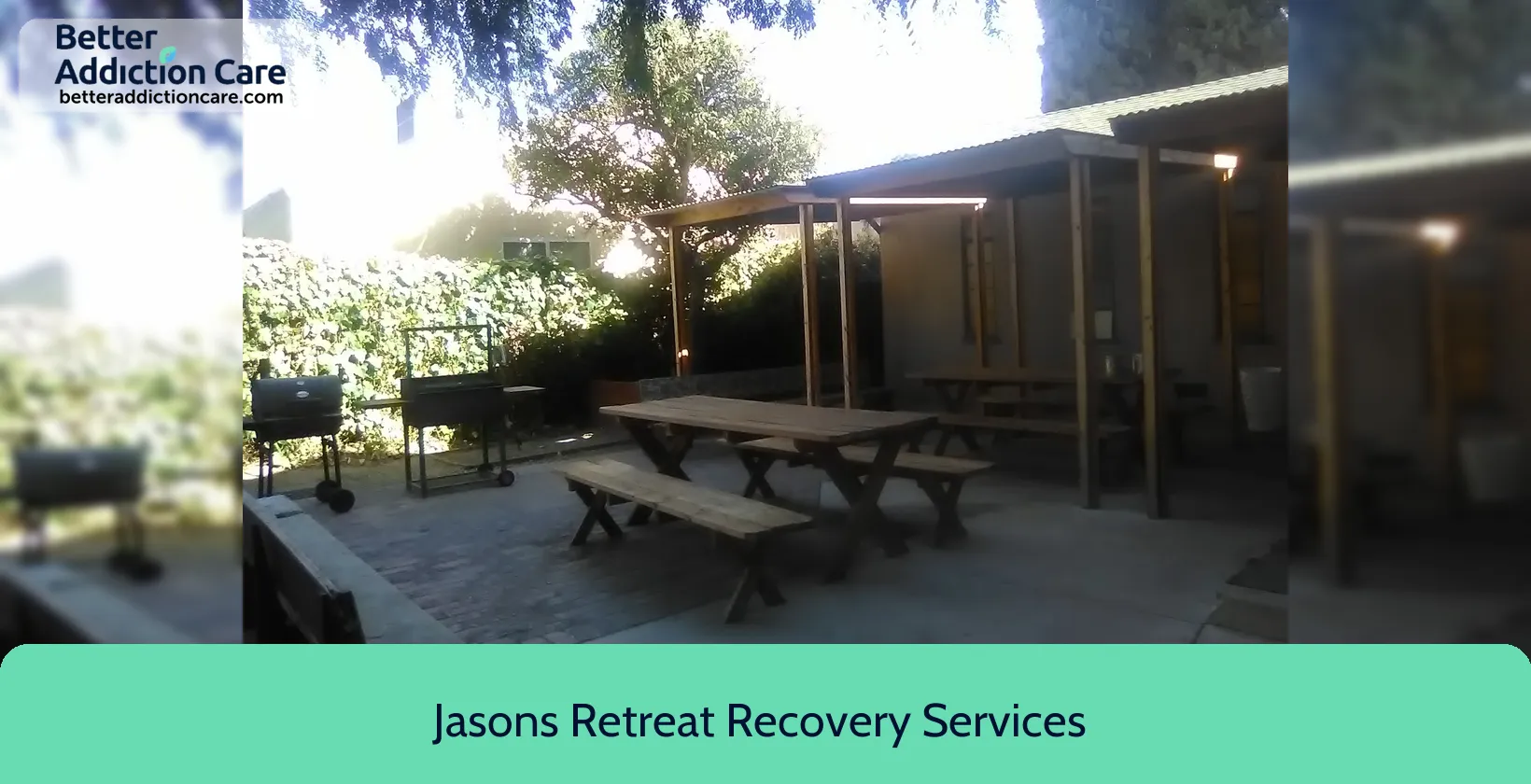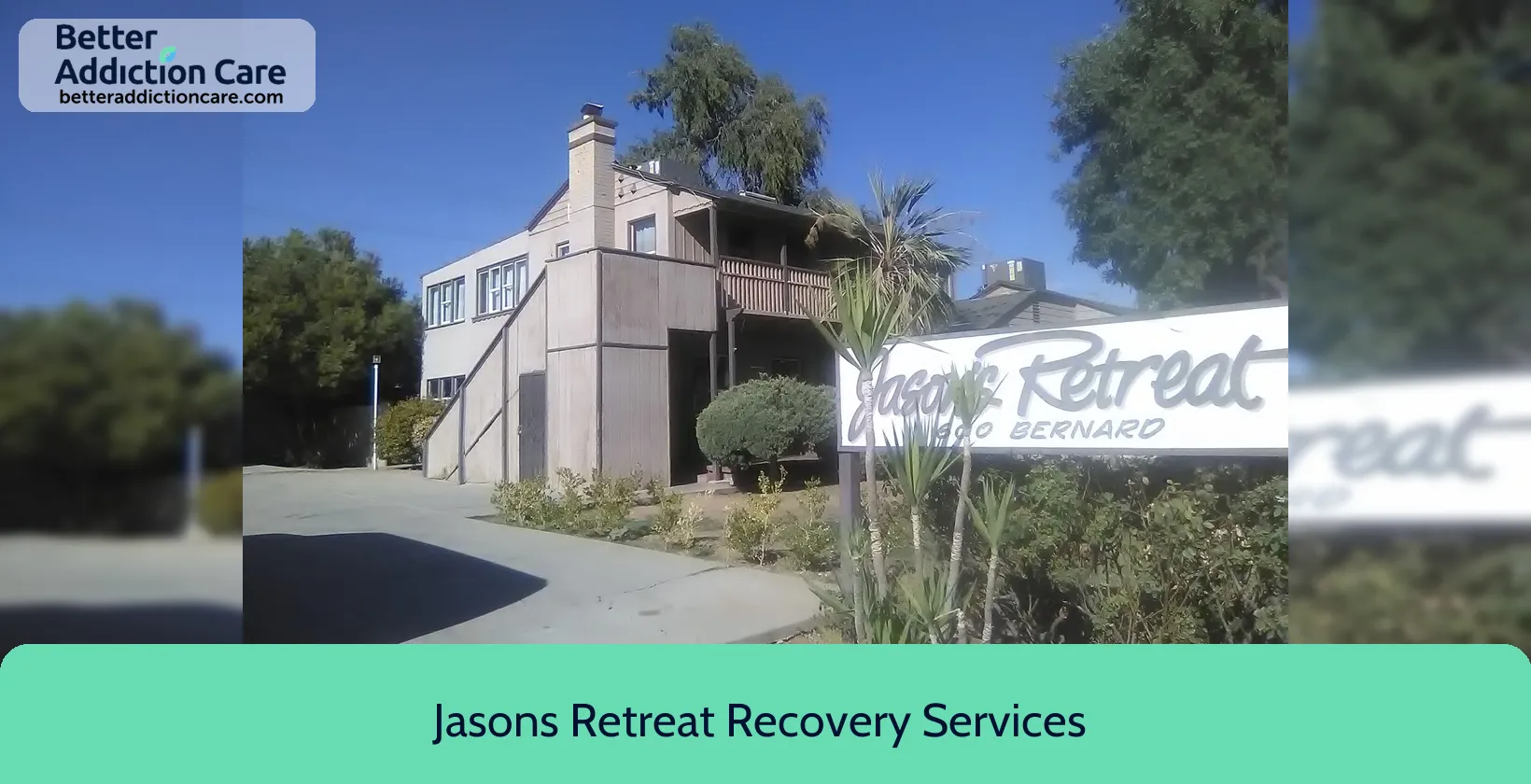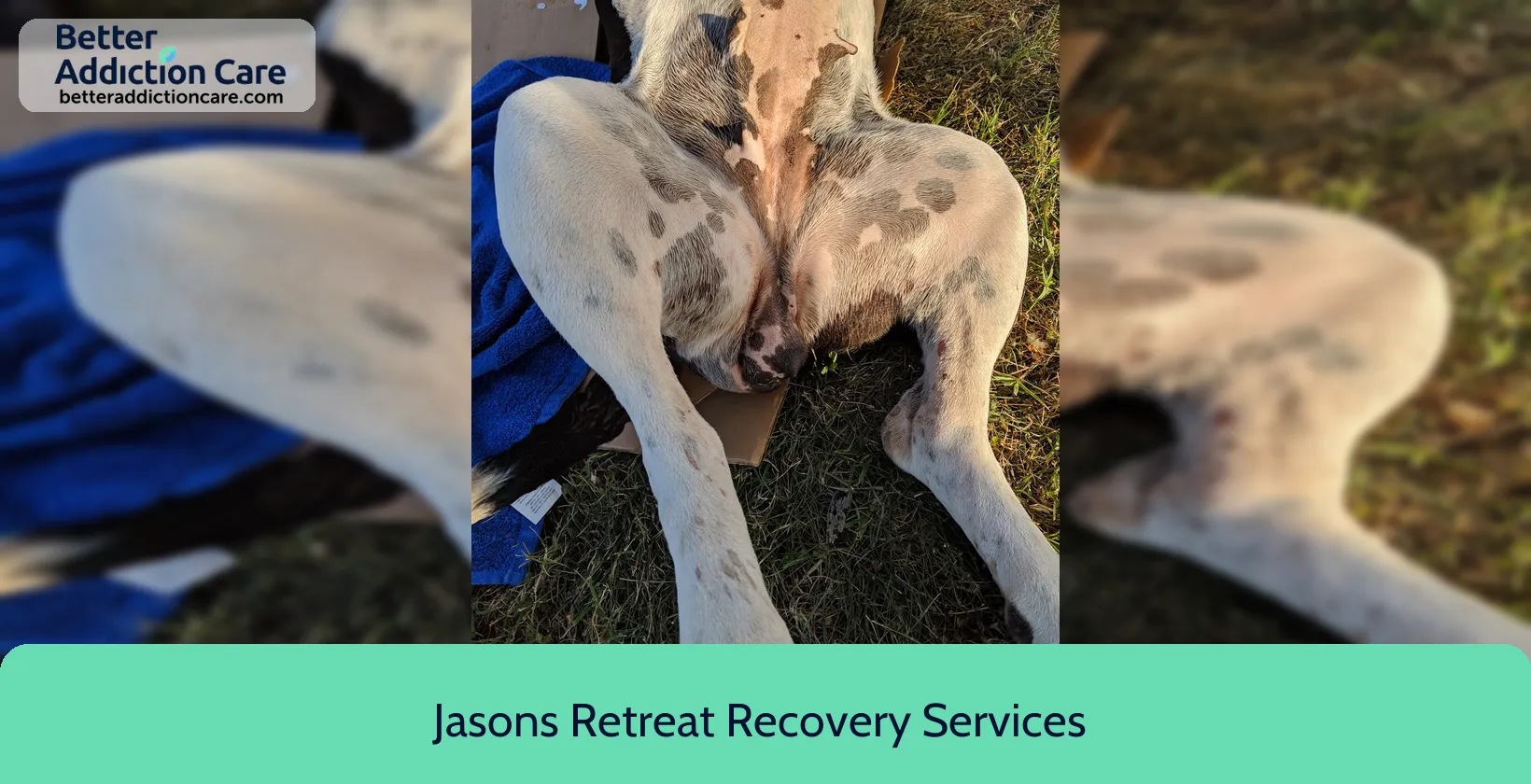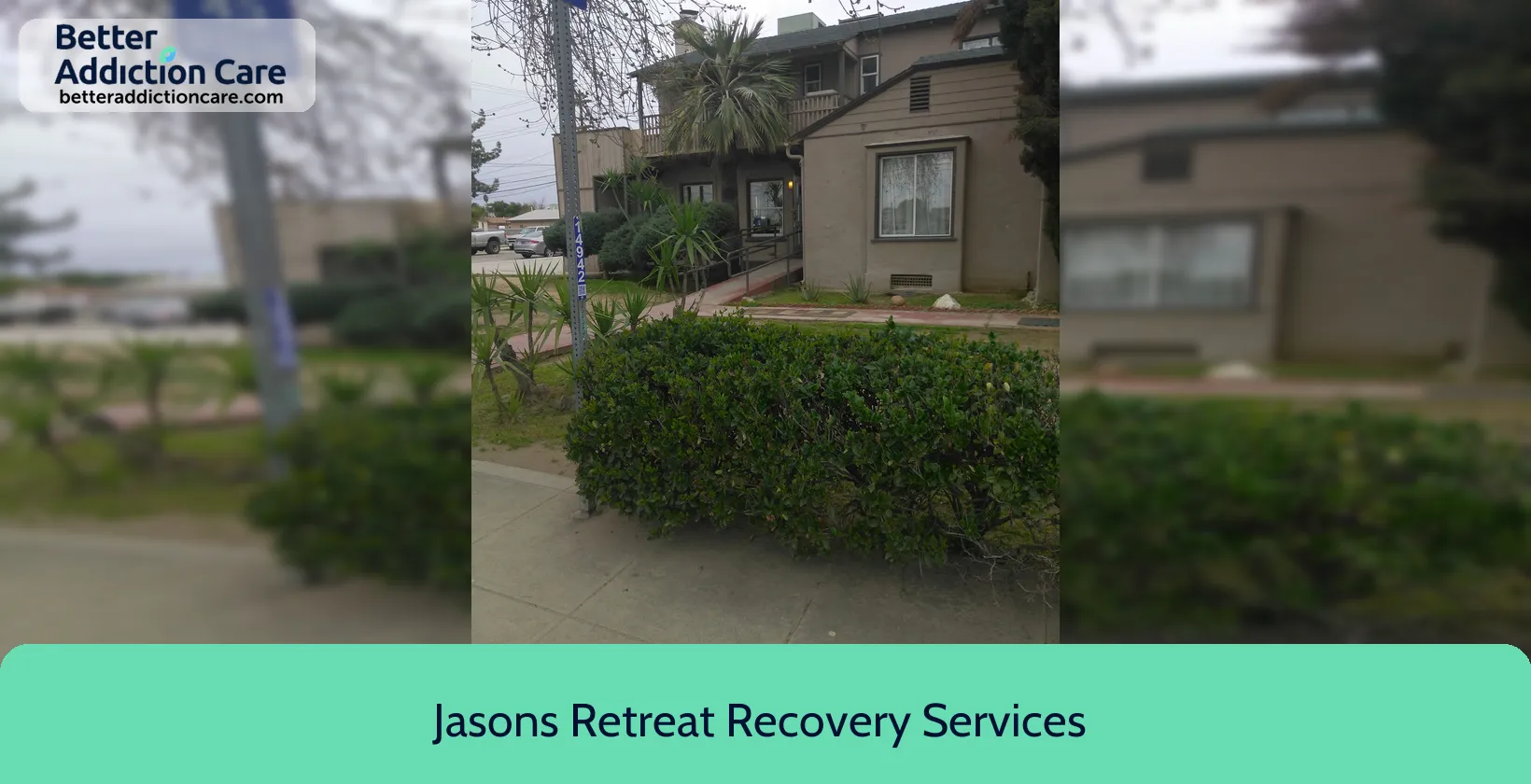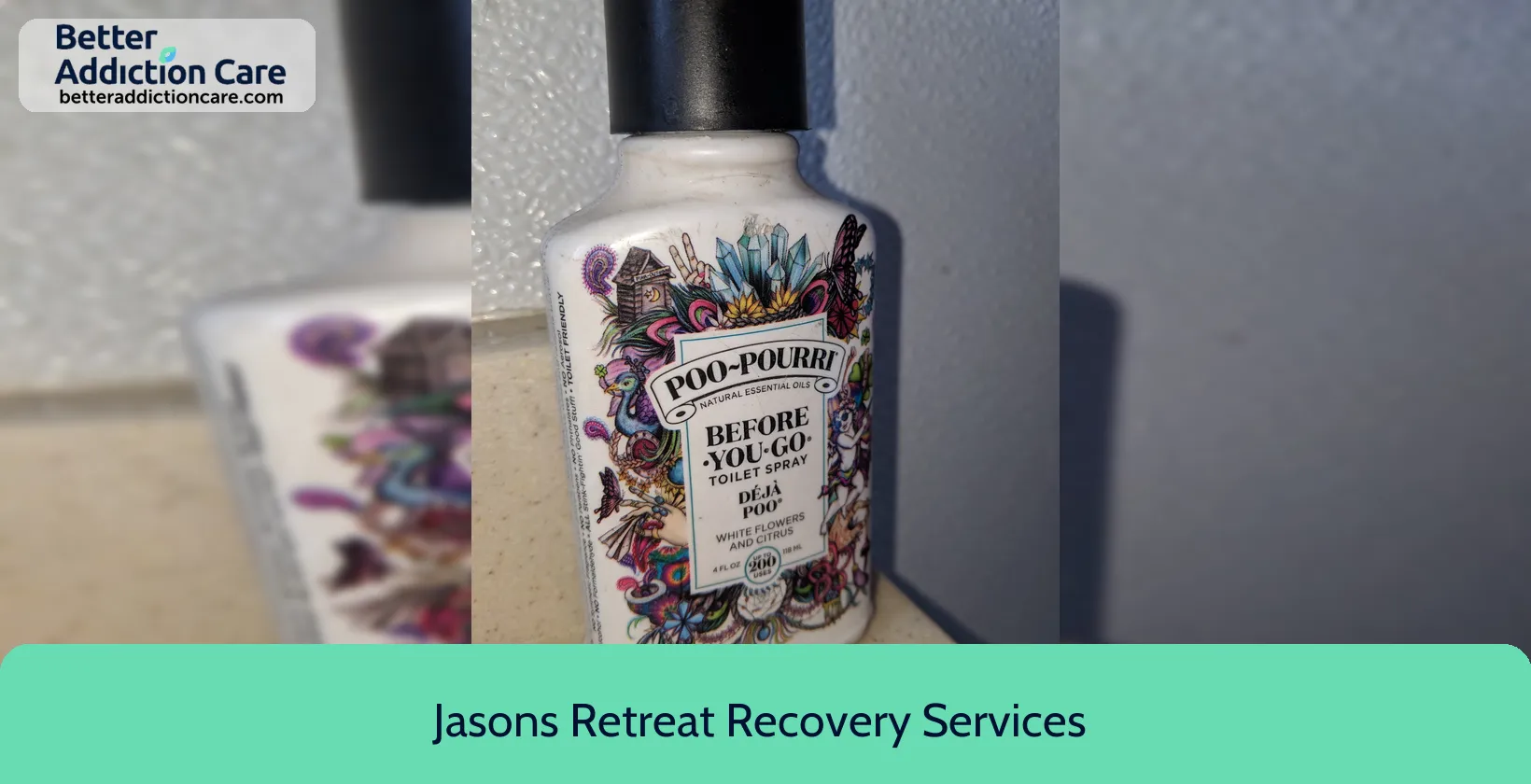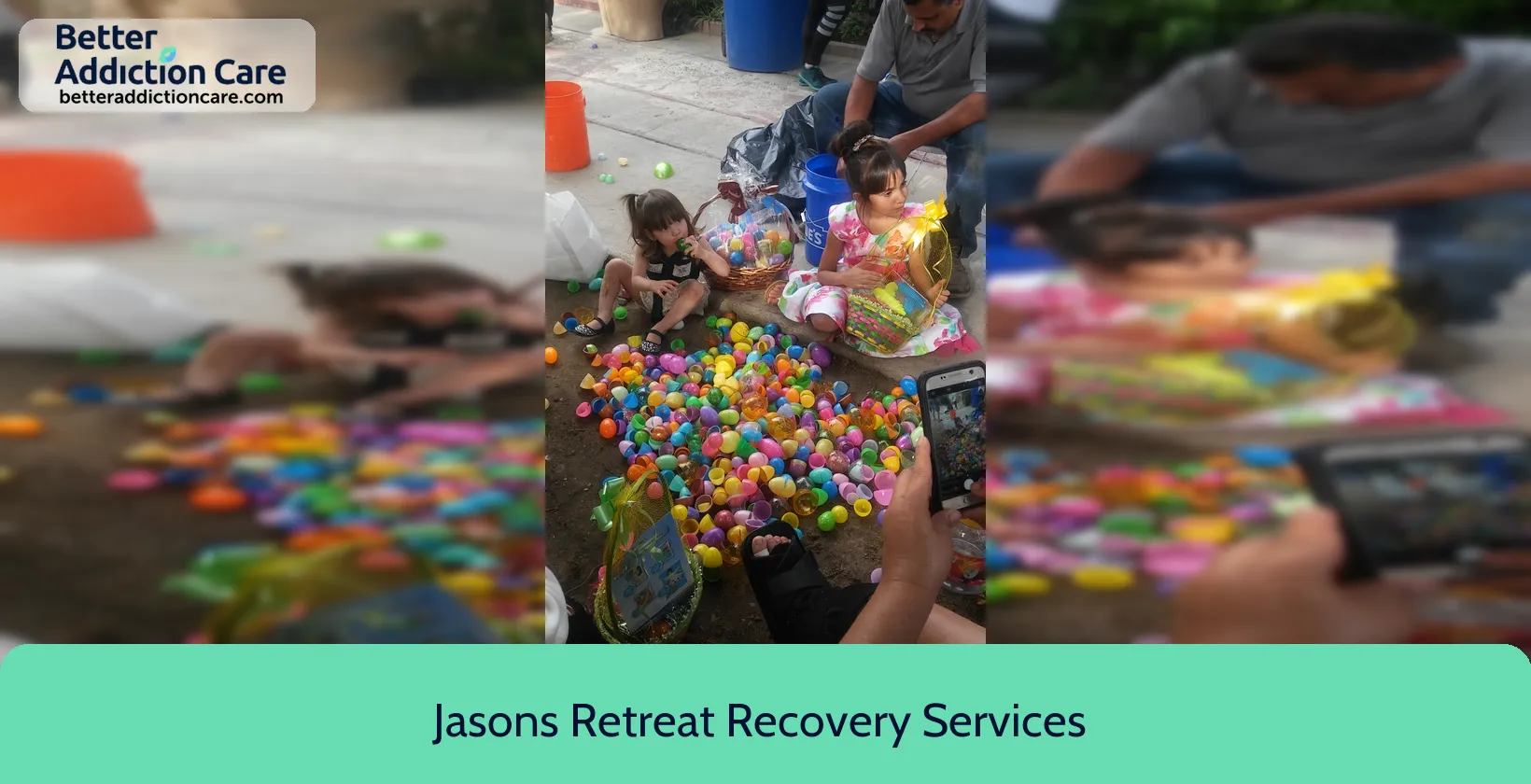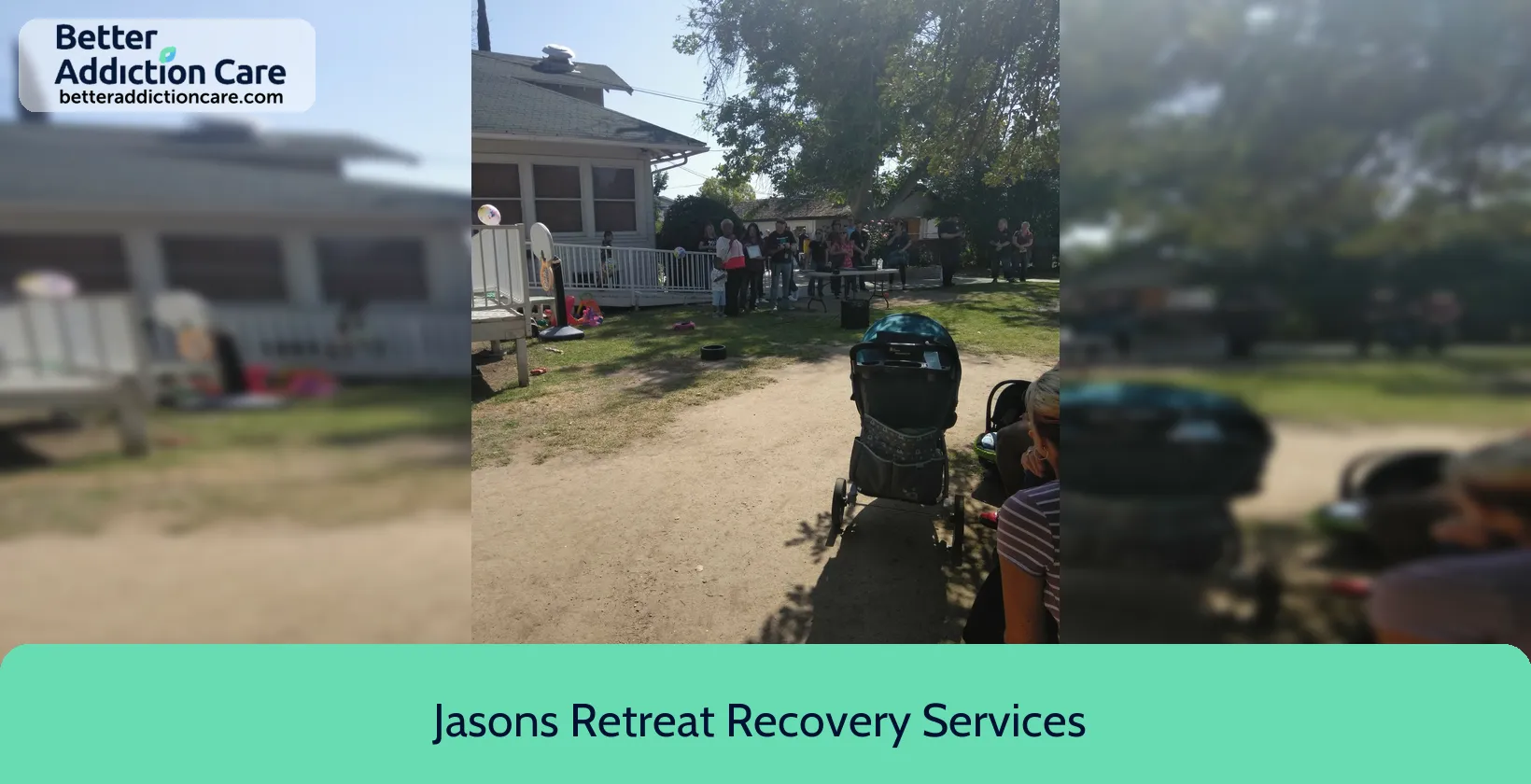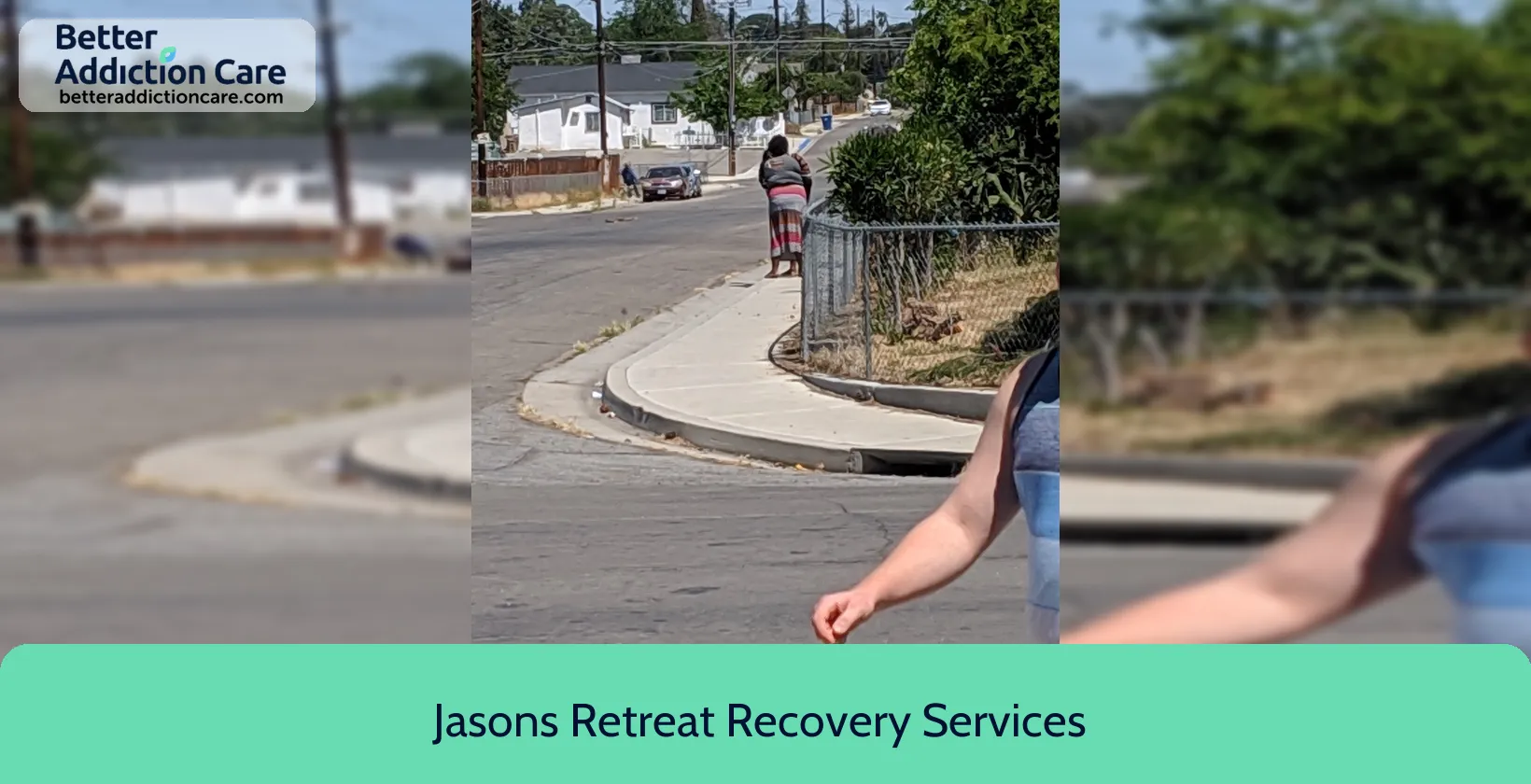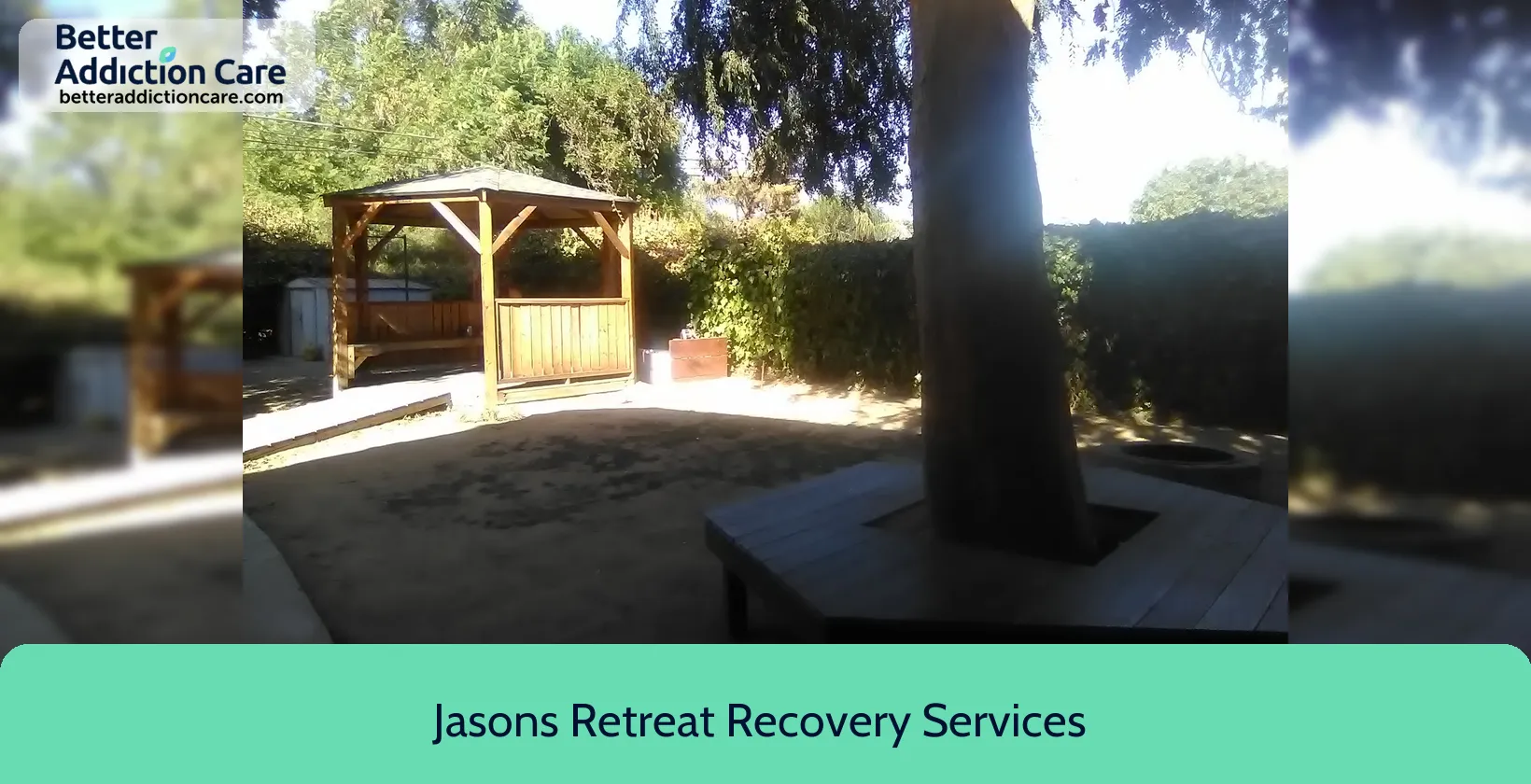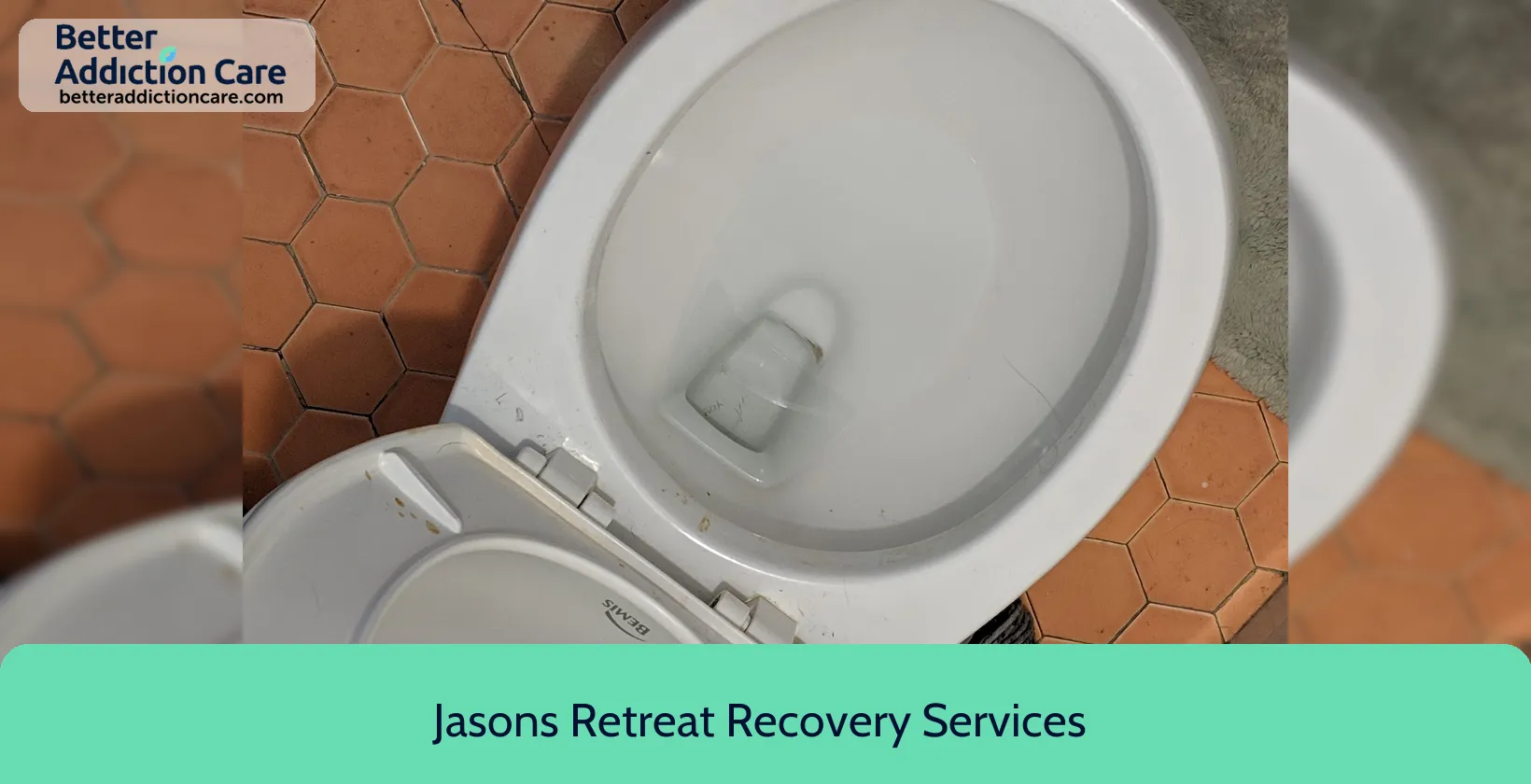Jasons Retreat Recovery Services - Outpatient
Overview
Jasons Retreat Recovery Services - Outpatient is an substance abuse treatment center that provides outpatient detoxification, for men and women from 18+ years of age. As part of their special programs, Jasons Retreat Recovery Services - Outpatient treats clients who have experienced trauma. To help patients achieve sobriety, Jasons Retreat Recovery Services - Outpatient provides intake assessments. Afterward, patients receive group counseling, trauma-related counseling, and individual psychotherapy during treatment. Jasons Retreat Recovery Services - Outpatient is located in Bakersfield, California, providing treatment for people in Kern County, accepting medicaid, cash or self-payment, and state-financed health insurance plan other than medicaid.
Jasons Retreat Recovery Services - Outpatient at a Glance
Payment Options
- Medicaid
- Cash or self-payment
- State-financed health insurance plan other than Medicaid
Assessments
- Comprehensive substance use assessment
Age Groups
- Adults
- Young adults
Operation
- Private for-profit organization
Highlights About Jasons Retreat Recovery Services - Outpatient
6.65/10
With an overall rating of 6.65/10, this facility has following balanced range of services. Alcohol Rehabilitation: 8.00/10, Drug Rehab and Detox: 6.00/10, Insurance and Payments: 6.00/10, Treatment Options: 6.61/10.-
Alcohol Rehabilitation 8.00
-
Treatment Options 6.61
-
Drug Rehab and Detox 6.00
-
Insurance and Payments 6.00
Treatment At Jasons Retreat Recovery Services - Outpatient
Treatment Conditions
- Alcoholism
- Opioid Addiction
- Substance use treatment
Care Levels
- Intensive outpatient treatment
- Detoxification
- Halfway house
- Outpatient
Treatment Modalities
- Group counseling
- Trauma-related counseling
- Individual psychotherapy
- Family counseling
- Marital/couples counseling
Ancillary Services
Special Programs
- Clients who have experienced trauma

Additional Locations
Get Help Now
Common Questions About Jasons Retreat Recovery Services - Outpatient
Contact Information
Other Facilities in Bakersfield

6.77

6.74

6.53

6.91

6.56
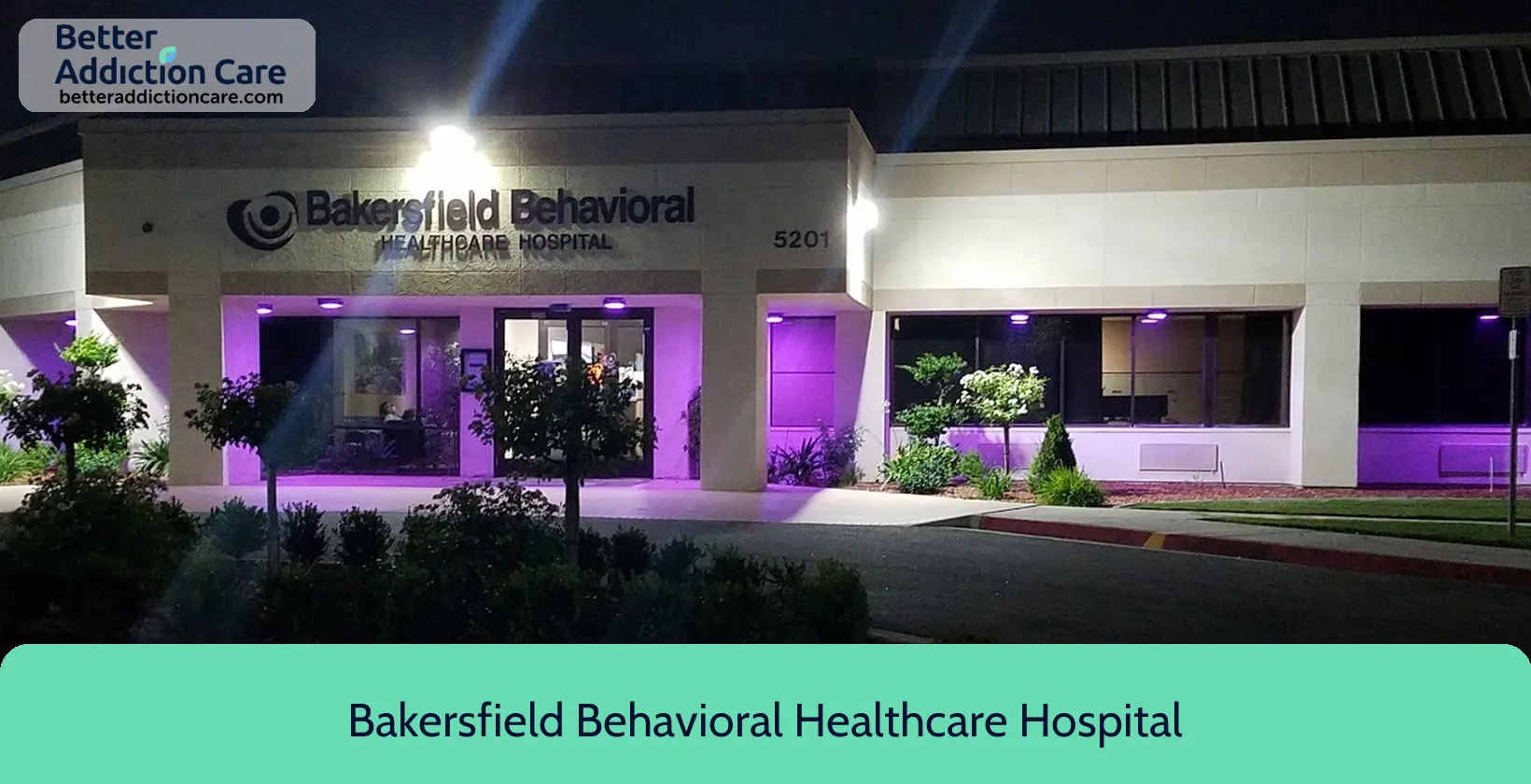
6.62
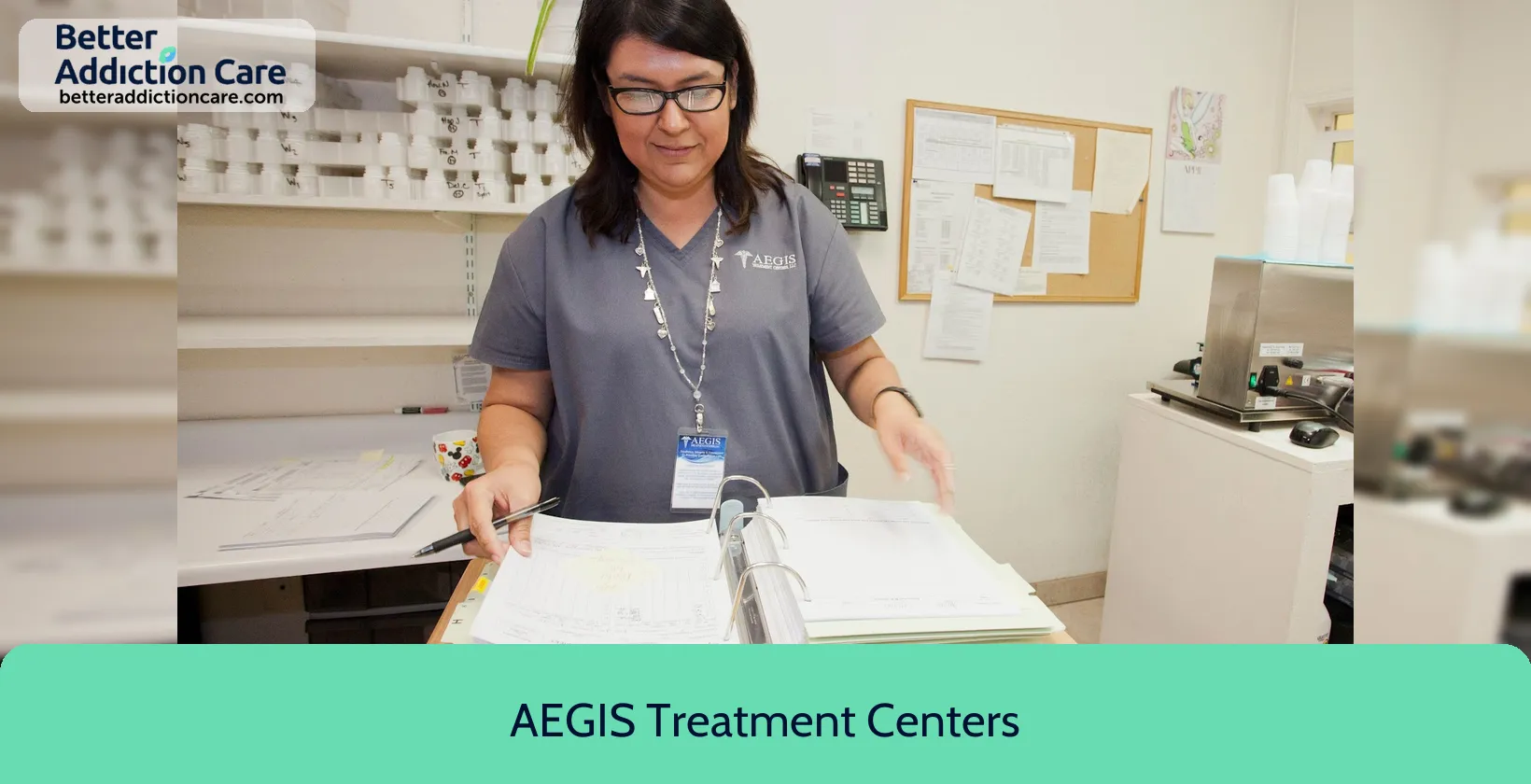
7.06

7.18
DISCLAIMER: The facility name, logo and brand are the property and registered trademarks of Synergy Recovery Services, and are being used for identification and informational purposes only. Use of these names, logos and brands shall not imply endorsement. BetterAddictionCare.com is not affiliated with or sponsored by Synergy Recovery Services.
